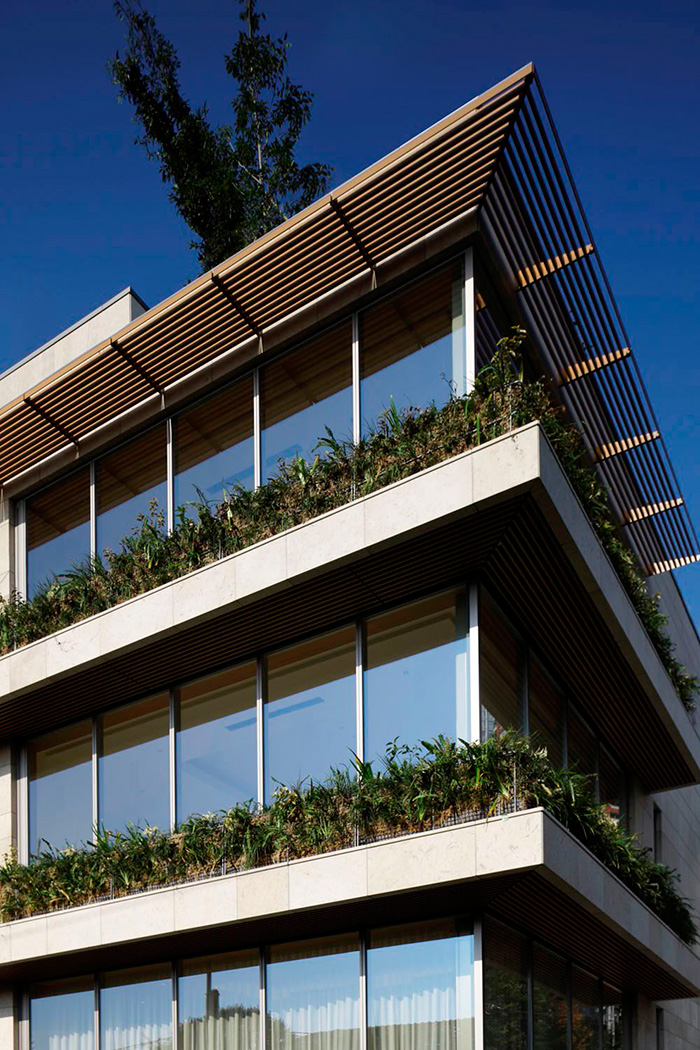Sustainability / LEED

Azabu Gardens, designed to minimize environmental impact, was the first LEED-certified residential building (New construction category) for the East building, in Japan and Azabu Gardens West has subsequently achieved a LEED SILVER certification.
LEED (Leadership in Energy and Environmental Design) is an internationally recognized rating system for environmentally sustainable construction and is administered by the U.S. Green Building Council (USGBC). In addition, the project has received an “A” CASBEE rating which is the sustainable construction system in Japan and is considered 'Very Good'.
The design of Azabu Gardens incorporates features that save energy, improve air quality and lessen the environmental impact of the construction and use of the building including:
- Energy modeling and optimized performance of building systems.
- Sun control overhangs and insulated, double glazed, low-E glass to control heat gain.
- Maximized day-lighting to spaces.
- Use of low-VOC emitting materials such as adhesives and paints.
- Maximized open space of the site and landscaping.
- Green roof and balcony plantings.
- Management and recycling of construction waste.
- Use of regionally produced and rapidly renewable materials.
- Specification of materials with recycled content.
- CASBEE 'A' rating which is the sustainable rating system used in Japan.
- Fuel-efficient, low-emission vehicles receive discounted parking rates.
- LEED-NC Certified (E) and LEED SILVER Certified (W)
LEED certification is for the first phase (Azabu Gardens East) only.
